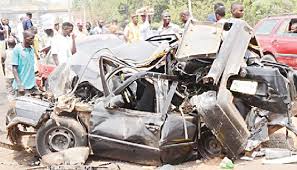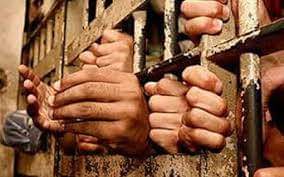— Calls for more funding, partnership to address insurgencies
By Abdullahi M. Gulloma
Abuja
President Goodluck Jonathan, governors of the 36 states of the federation and members of the National Security Council yesterday condemned last week’s memorandum written by Adamawa state Governor Murtala Nyako in which he accused the federal government of sponsoring genocide in some northern states.
Addressing State House correspondents at the end of a seven-hour enlarged security council meeting in Abuja, the Minister of Defence, Lt.-General Aliyu Mohammed Gusau (rtd), said the meeting stressed the need for public office holders to desist from making statements that are capable of exercerbating the already precarious security situation in the country.
The minister, who addressed journalists alongside Governors Kayode Fayemi (Ekiti), Mu’azu Babangida Aliyu (Niger), Theodore Orji (Abia) and Kashim Shettima (Borno), said it was agreed at the meeting that the federal government should do everything within its power to bring the security challenges like terrorism, kidnapping and incessant clash between herdsmen and farmers under control.
Elaborating on decisions taken on Nyako’s memo, Governor Aliyu said: “I am sure many of you will be curious about the memo written by one of us. We looked at it all. In fact, he was allowed to read the memo to all of us and we discussed and concluded that for all of us, we need to be very careful with the kind of statement we make.
“We need to be very careful that whatever we say must either be evidence-based or something that can be authenticated.
“There is no need to be giving terrorists the opportunity of thinking that they are succeeding. All the terrorist want is for him to find out that whatever he does is carried out in such a way that people will believe he is succeeding and is having some impact.”
Also speaking, Governor Orji said there was a unanimous condemnation of the Nyako memo, adding that all public officers were advised to be conscious of what they say.
He said the meeting recognised that the issue of security was not for the federal government alone, hence it should be a corporate issue to be handled corporately by the federal, state and local governments.
Orji revealed that the meeting also agreed that governors, who are the chief security officers of the states, have to do a lot to help in addressing insurgencies because the security issue is at the state level.
“In so doing, the state governors should mobilise their radio houses in order to sensitise the people in the states so that they will be ware of this security situation,” he said.
The governor said the meeting also agreed that Boko Haram is not a religious war and that people should not misrepresent it to be so because both Muslims and Christians are being killed.
On the abduction of secondary school students by suspected terrorists in Borno state, Governor Fayemi said the meeting agreed that everything must be done to free the abducted girls.
He said: “The meeting stressed the importance of rising above partisanship when dealing with security issues. We stressed the importance of security agencies to be scrupulously professional and non-partisan. The meeting commended the security agencies and urged them to share data amongst themselves.
“We also agreed that we need a holistic response to terrorism. Military action is sine qua non but there has to be an anti-poverty strategy.
“The meeting also stressed the need to address the capacity of media practitioners in order for them to be more patriotic in their reportage.”
He said the meeting agreed that ranches should be created as a long-term measure to address the incessant clash between Fulani herdsmen and farmers, adding that grazing routes would be properly gazetted and enforced as a short-term measure.
On the issue of religion, the meeting agreed that there should be monitoring of what is being preached by some religious leaders and to make them understand the larger implication of what they preach to the nation at large.
Apart from Jonathan, those who attended the security council meeting were Vice President Mohammed Namadi Sambo, Minister of Interior, Abba Moro; Minister of Police Affairs, Abduljelil Adesiyan; Minister of Foreign Affairs, Aminu Wali; Minister of Agriculture, Akinwunmi Adesina; Attorney General and Minister of Justice, Mohammed Bello Adoke; the Sultan of Sokoto, Muhammad Sa’ad Abubakar III, and the President of Christian Association of Nigeria (CAN), Ayo Oritsejafor.
State governors in attendance were Willie Obiano (Anambra), Theodore Ahmaefule Orji (Abia), Abdul’aziz Yari (Zamfara), Henry Seriake Dickson (Bayelsa), Gabriel Suswam (Benue), Martin Elechi (Ebonyi), Abdulfatah Ahmed (Kwara), Emmanuel Ewetan Uduaghan (Delta), Murtala Nyako (Adamawa), Kashim Shettima (Borno), Aliyu Magatakarda Wamakko (Sokoto), Mukhtar Ramalan Yero (Kaduna), Garba Umar (Taraba), Dr Kayode Fayemi (Ekiti), Umar Tanko Al-Makura (Nasarawa), Sa’idu Nasamu Dakingari (Kebbi), Godswill Akpabio (Akwa Ibom), Mu’azu Babangida Aliyu (Niger) Olusegun Mimiko (Ondo), Lyel Imoke (Cross River), Isa Yuguda (Bauchi), Sullivan Chime (Enugu) and Rauf Aregbesola (Osun), as well as the deputy governors of Jigawa, Imo, Oyo, Rivers, Kano, Ogun, Plateau, Edo and Yobe states.
The security chiefs that attended the meeting were Chief of Defence Staff, Alex Badeh; Chief of Army Staff, General Kenneth Minimah; Chief of Naval Staff, Dele Joseph Ezeoba; Chief of Air Staff, Adesola Amosu; Inspector General of Police, Mohammed D. Abubakar; Comptroller General of Nigeria Customs Service, Dikko Abdullahi Inde; Comptroller General of Nigeria Immigration Service, David Paradang; Commandant of the Federal Road Safety Corps, Osita Chidoka and Commandant of NSCDC, Ade Abolurin.



